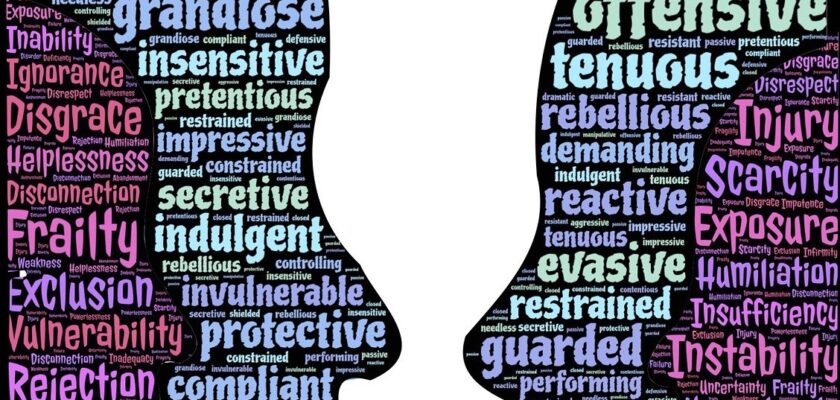Most narcissists deem it important to project an image of superiority, as if they are not inclined toward the tensions of the average Joe or Jane. Appearing vulnerable is anathema to them, which means they need to give the appearance of being “better than.”
And yet, as you get to know them, you find that they are not nearly as strong or together as they wish to appear. In fact, they are quite troubled on the inside. Though a strong appearance is preferred, they are in fact emotional weaklings. Keep in mind…the evidence of a person’s strength is not found in verbal proclamations, but in initiatives and reactions.
That being the case, let’s list ten of the most common signs of their struggles with emotional weakness. They want you to believe you are the weak one, yet they constantly offer evidence to the contrary. For instance:
- They do not set the stage for love or peace. One of the most common indicators of narcissism is the penchant for sowing seeds of discord. Narcissists think competitively, seeing relationships through a win/lose paradigm. Any “love” they express is superficial and short-lived, and “peace” is defined as them getting their way.
- They waste emotional energy over minutia and fixed circumstances. Prone toward irritability and tension, they cannot tolerate life that does not fit The Agenda. Instead of accepting life’s imperfections or differences, they fume and are readily agitated.
- Their anger is ugly. Narcissists’ anger is aroused easily and when it is expressed, it has no governor. They argue easily, and can become openly or passively aggressive. Constructive assertiveness is lost on them.
- Griping, carping, and complaining come easily. In their psychological weakness, narcissists are unable to find sustained internal calmness. Unable to be satisfied, criticism is just what they do.
- They are incapable of maneuvering through nuances and unique circumstances. Narcissists have such strong binary thinking, they cannot make room for unusual (or just different) explanations for the ways we commonly differ. Truly, they do not want to “waste time” sifting through another person’s back story.
- It is virtually impossible to discuss problems constructively with them. Narcissists are so readily stubborn, opinionated, and close-minded, they are unable to engage in give-and-take discussions. It’s as if they think: “Please don’t confuse me with the facts; my mind is already made up.”
- They have an absurd inclination toward defensiveness. If you confront a narcissist or just speak from a different perspective, their walls of defensive become impenetrable. They rationalize their decisions. They deflect attention away from personal flaws. They use projection and blame-shifting tactics commonly.
- They will set up drama, then complain about your reactions. They may ask loaded questions, then gripe when you do not answer them correctly. They may refuse to coordinate on tasks, then act annoyed when it is not completed. They may lecture you, then accuse you of being close-minded when you do not conform.
- They are dishonest when discussing their hurts. Narcissists absolutely do not want to be identified with people who hurt, unless it gains them favor. They work hard to create false narratives about why things go wrong in their lives, with the blame being placed on anything but one’s own decisions.
- They refuse to let go of grudges. Narcissists like to hold a club over you, so when you disappoint them, they will cling to feelings of contempt. No apology from you will suffice. You will become the object of character assassination. They love the feeling of power that accompanies resentment.
Looking over this list, you can conclude that none of these signs give evidence of inner strength. Narcissists may approach you with an attitude of bravado, control, entitlement, and haughtiness. But let’s not confuse that with strength.
Inner strength is characterized by consistent honesty, especially when imperfections exist. Likewise, differences will be managed with civility, and patience can be applied when necessary. Strong individuals know when to say “I don’t know” or “I’d like to learn more.” They have opinions, yet they will listen to opinions that differ. They see failures as opportunities to grow and mature. They accept their inability to control all circumstances. They prioritize intuitive thinking over raw reactions. They value calm discussions over shaming and guilt induction.
Each time narcissists attempt to lord over you as if you are inadequate and undesirable, know that they are in cover-up mode. The reason they cannot accept your humanity is directly linked to their inability to say: “Sometimes we each feel weak, or sometimes we just differ. Let’s talk.”
~Les Carter, Ph.D.
If you’d like to watch the video version of this article, click here.


